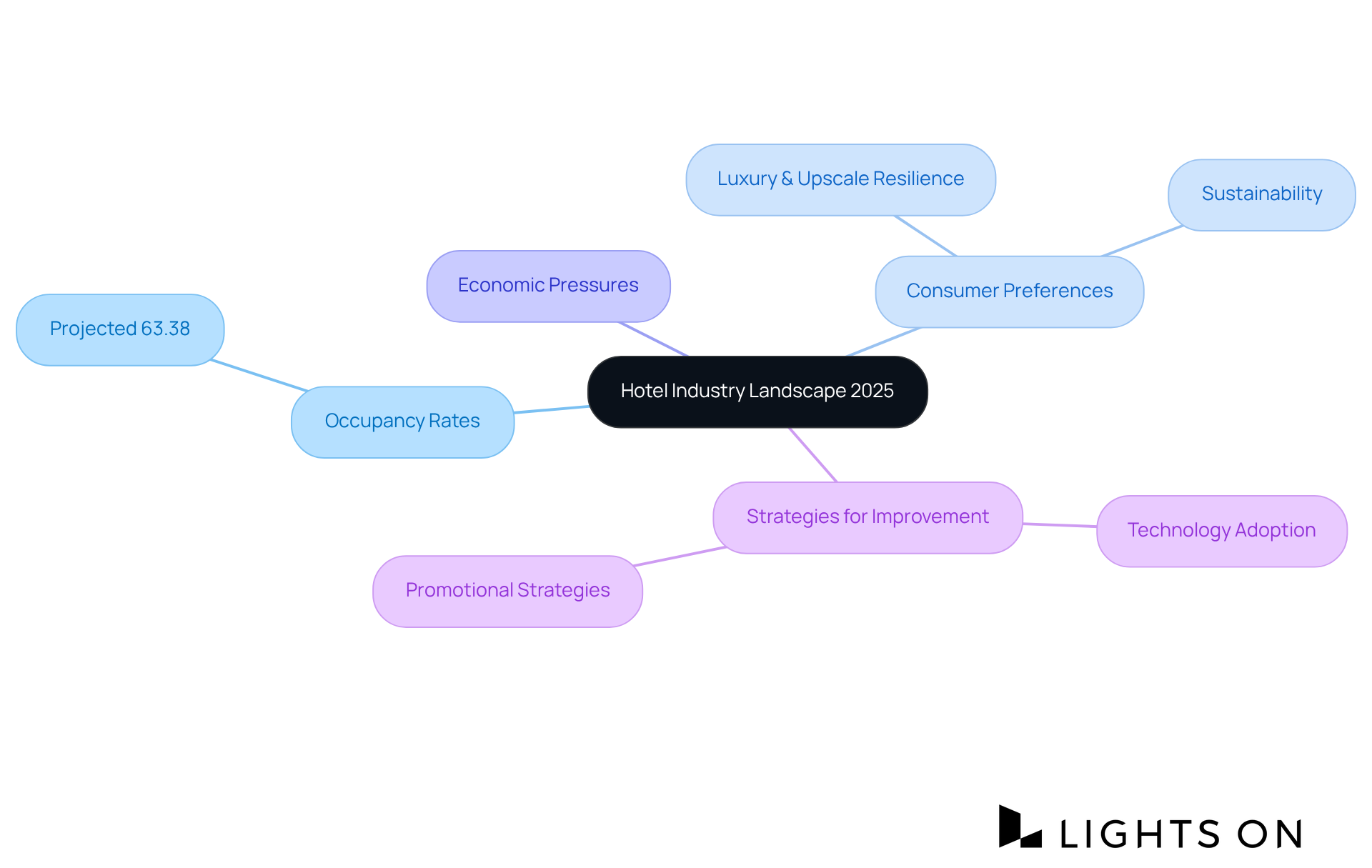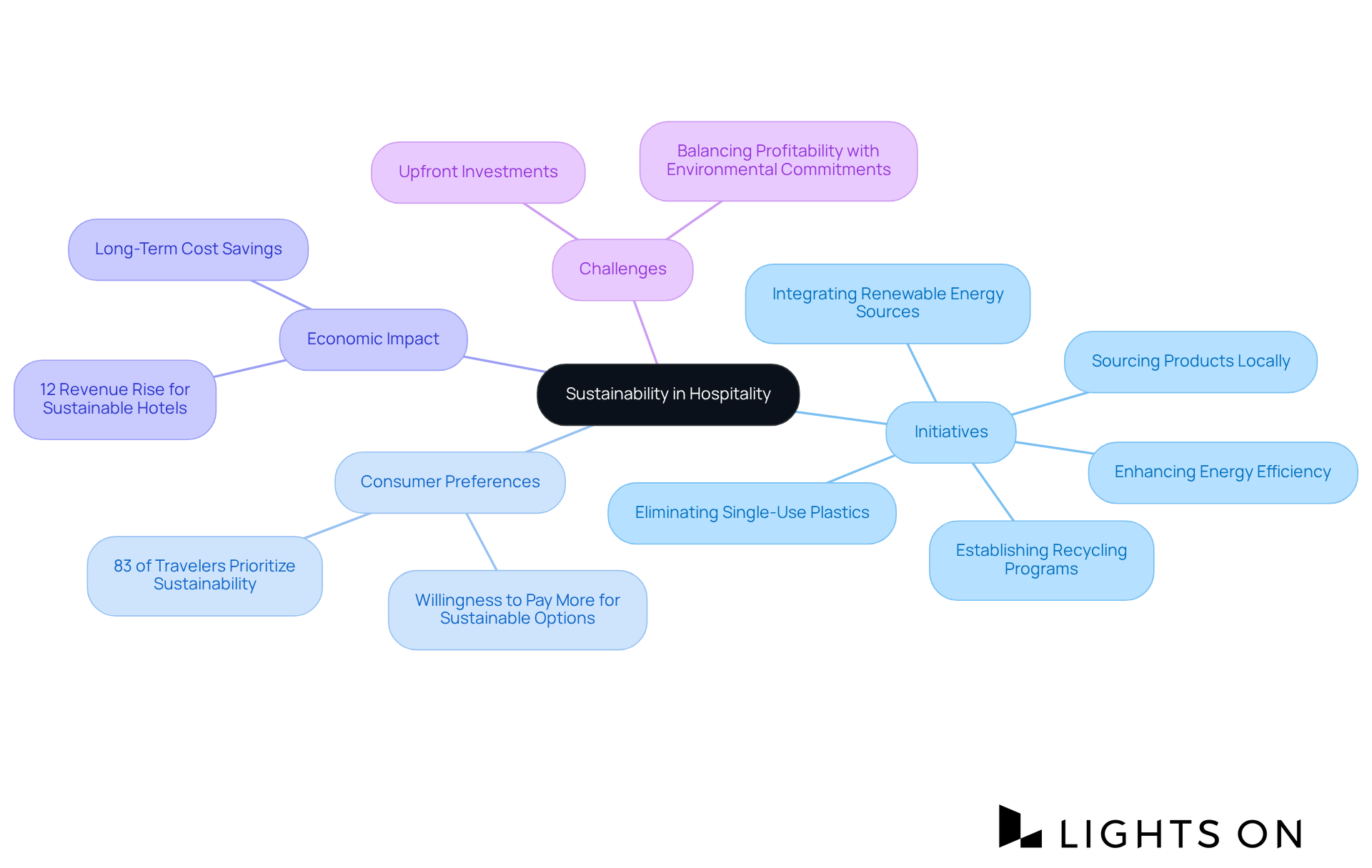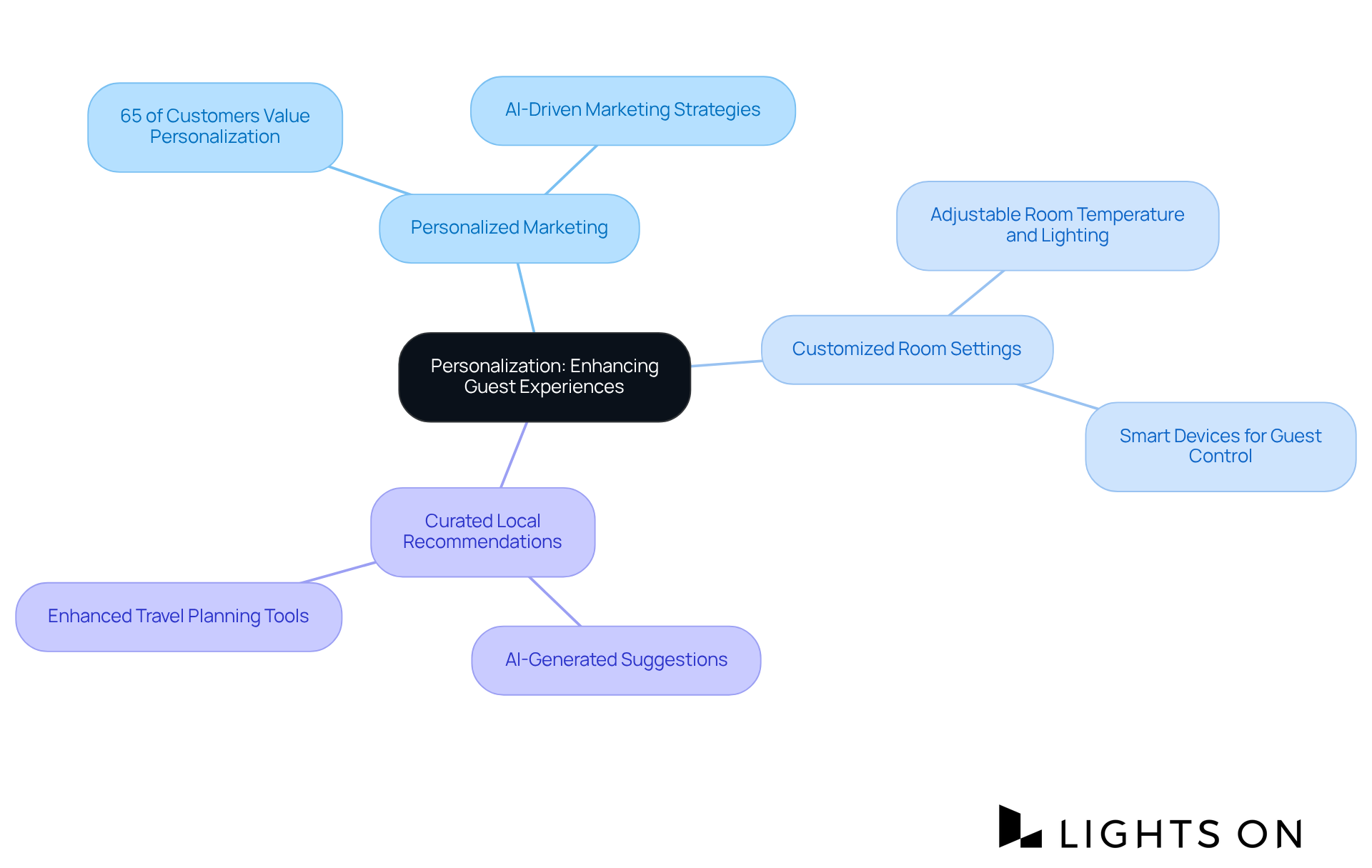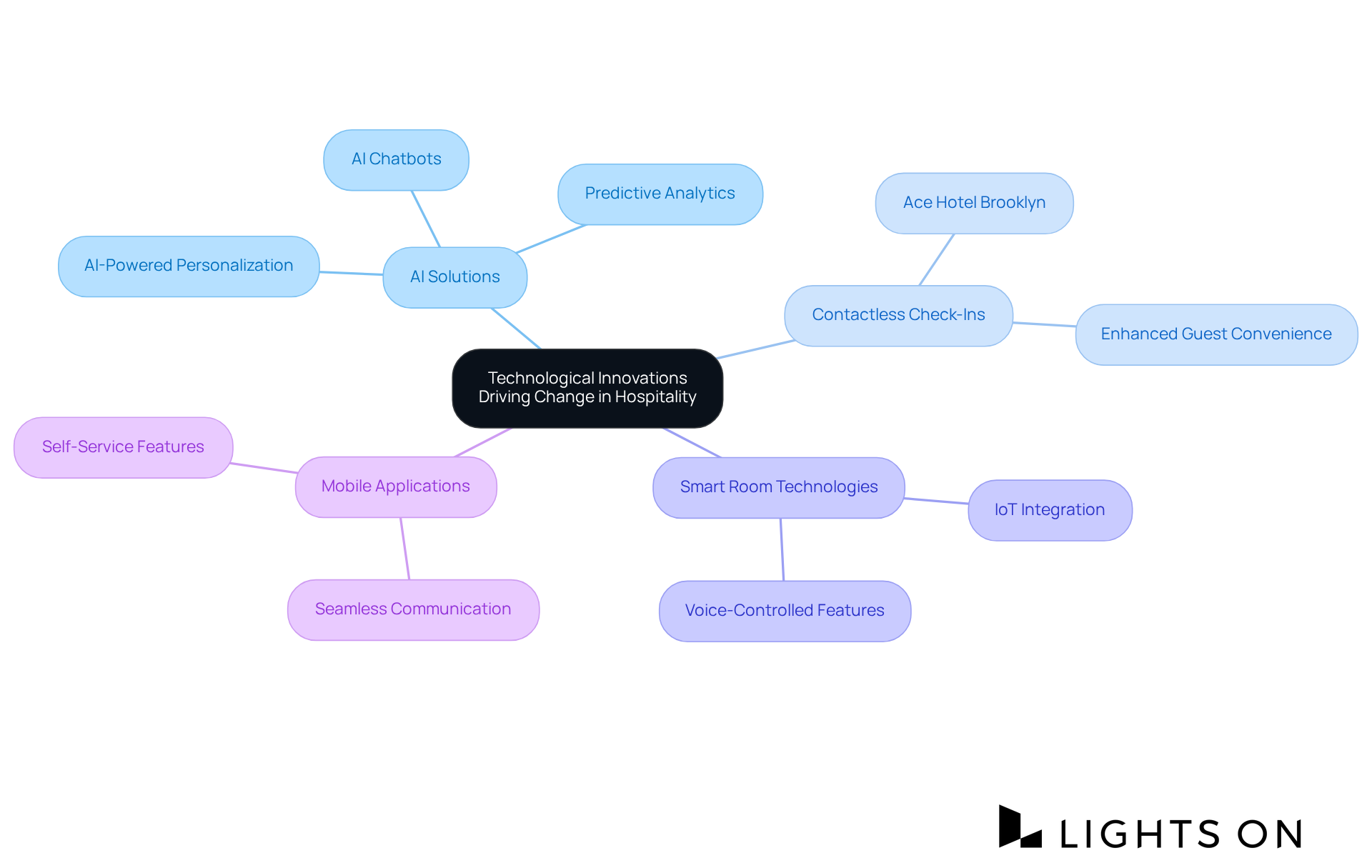As we look toward 2025, the hotel industry is witnessing pivotal trends that are reshaping its landscape. A pronounced focus on sustainability, the personalization of guest experiences, and the integration of technological innovations stand out as essential strategies for adapting to evolving consumer preferences and economic pressures. These trends not only enhance guest satisfaction and loyalty but also drive operational efficiency and revenue growth. It is imperative for industry stakeholders to recognize the necessity of embracing these strategies to secure long-term success in a competitive market.
As the hotel industry approaches 2025, it confronts a dynamic landscape shaped by shifting consumer preferences, economic challenges, and technological advancements. This pivotal period presents a unique opportunity for establishments to enhance guest experiences and operational efficiency through innovative strategies, such as sustainability initiatives and personalized services.
However, with these evolving expectations come pressing questions:
These inquiries not only highlight the challenges ahead but also underscore the necessity for strategic adaptation in a rapidly changing environment.
In 2025, the hotel industry trend reveals a complex landscape marked by fluctuating occupancy rates, evolving consumer preferences, and economic pressures. Recent reports indicate that U.S. lodging occupancy is projected to reach approximately 63.38%, slightly below pre-pandemic levels. The industry is also experiencing a deceleration in revenue per available room (RevPAR) growth due to macroeconomic headwinds. However, there is a silver lining in the hotel industry trend, as certain segments, particularly luxury and upscale accommodations, continue to demonstrate resilience.
To improve reservations and , property owners must leverage technology by adopting advanced booking systems and tailored promotional strategies that directly address changing consumer preferences. Furthermore, a focus on sustainability can attract environmentally conscious travelers, thereby boosting occupancy rates. By integrating these marketing techniques, establishments can effectively navigate the challenges of the current environment while enhancing visitor experiences and managing expenses.
Ultimately, the hotel industry trend indicates that the path forward lies in embracing innovation and sustainability, which not only address immediate challenges but also position lodging establishments for long-term success in a rapidly evolving market.

In 2025, sustainability emerges as a pivotal focus for the hotel industry trend, driven by a significant consumer shift towards eco-friendly practices. The hotel industry trend shows that hotels are increasingly adopting initiatives such as:
Many properties are now integrating renewable energy sources and establishing robust recycling programs. Recent studies indicate that 83% of travelers view sustainable travel as crucial, leading to a hotel industry trend where accommodations must adapt their operations to meet these evolving expectations. This transformation not only fulfills guest demands but also reflects the hotel industry trend of leading to substantial long-term cost savings and fostering enhanced brand loyalty.
Notably, accommodations embracing sustainable practices have reported an average 12% rise in overall revenue compared to their non-sustainable counterparts, illustrating a significant hotel industry trend that underscores the concrete economic advantages of these initiatives. To effectively promote these sustainability efforts, accommodations should highlight their in advertising campaigns, targeting eco-conscious travelers who prioritize sustainability in their travel choices.
Successful case studies demonstrate that engaging in sustainability is a hotel industry trend that not only boosts profitability but also strengthens community ties through collaboration with local suppliers and initiatives. However, the hotel industry trend indicates that accommodations encounter challenges in implementing these practices, including significant upfront investments and the necessity to balance profitability with environmental commitments. This comprehensive approach reinforces the significance of sustainable practices in shaping the future of hospitality while providing practical strategies to enhance reservations and revenue management.

In 2025, personalization has evolved into a fundamental expectation for guests. Advanced data analytics and AI technologies are being harnessed to create tailored experiences that resonate with individual preferences. This includes:
For instance, accommodations can now adjust room temperatures and lighting based on preferences noted during prior visits, thereby enhancing comfort and satisfaction. The rise of is a notable hotel industry trend that not only enhances guest experiences but also significantly increases repeat bookings; guests are increasingly inclined to return to establishments that effectively cater to their unique needs. Notably, 65% of customers identify personalization as a crucial factor in their hospitality experience, with many willing to pay up to 25% more for a stay that feels uniquely tailored to them.
Case studies, such as the implementation of AI-driven travel planning tools, illustrate how these technologies simplify the planning process and enhance user convenience, ultimately leading to increased direct reservations for hotels. As the hotel industry trend continues to embrace these innovations, the emphasis on personalized service will remain a pivotal strategy for success.

In 2025, the hotel industry trend shows that technological advancements are revolutionizing the hospitality sector, with AI at the forefront of enhancing operational efficiency and promotional strategies. Hotels are increasingly embracing AI-driven solutions that streamline processes, including predictive analytics for demand forecasting and automated interactions via chatbots. These innovations not only reduce operational costs but also elevate service delivery, empowering staff to focus on that can be leveraged in marketing campaigns to attract a broader clientele.
Contactless check-in systems are becoming the norm, enabling guests to unlock their rooms using mobile devices, thereby enhancing convenience and safety. For example, Ace Hotel Brooklyn has implemented a contactless check-in solution that allows guests to utilize their iPhones or Apple Watches for room access, significantly improving their experience. This innovation can be highlighted in promotional materials to showcase the establishment's commitment to guest safety and convenience.
Furthermore, the integration of smart room technologies powered by the Internet of Things (IoT) allows guests to control their environment—adjusting lighting, temperature, and entertainment systems—directly from their devices. This level of customization not only boosts guest satisfaction but also encourages repeat patronage, as accommodations can tailor services to individual preferences. Marketing strategies can emphasize these personalized experiences to attract tech-savvy travelers.
The rise of mobile applications enhances seamless communication between guests and accommodation staff, facilitating immediate service requests and feedback. In fact, 73% of travelers prefer accommodations that offer self-service technology, underscoring the importance of these innovations in meeting guest expectations. AI tools are also being utilized to analyze guest data, providing actionable insights that help establishments refine their marketing strategies and improve overall operational efficiency.
As the hotel industry trend progresses, it is crucial for accommodations to adopt these technological advancements to remain competitive. Neglecting to keep up with these innovations can result in dissatisfied guests and lost opportunities for operational optimization, highlighting the necessity of ongoing investment in technology and staff training to address the evolving expectations of travelers. By integrating these technologies into their marketing strategies, accommodations can effectively boost bookings and enhance revenue management, reflecting the hotel industry trend.

The rise of remote work has significantly transformed the , resulting in an increase in 'bleisure' travel—where business trips are extended for leisure purposes. In 2025, projections indicate that 58% of business travelers will be merging work and leisure, highlighting a hotel industry trend that prompts accommodations to adapt their services accordingly.
Properties are now focusing on this demographic by offering work-friendly amenities such as:
This strategic shift not only enables hotels to attract a new segment of travelers but also reflects the hotel industry trend of encouraging longer stays, ultimately enhancing occupancy rates and revenue.

In 2025, the hotel industry stands at a pivotal juncture, marked by an urgent need for innovation and adaptability in response to evolving consumer demands and economic challenges. This landscape presents a complex blend of opportunities and hurdles, where embracing sustainability, personalization, and technological advancements will be essential for success. As hotels navigate these trends, the emphasis on enhancing guest experiences while ensuring operational efficiency will profoundly impact their ability to thrive in a competitive market.
Key insights from the article highlight the critical importance of integrating sustainable practices, which not only attract eco-conscious travelers but also provide significant financial advantages. Personalization has emerged as a fundamental expectation; data-driven strategies are vital for enhancing guest satisfaction and fostering loyalty. Moreover, the rise of remote work has transformed travel dynamics, compelling hotels to cater to the needs of 'bleisure' travelers by offering work-friendly amenities. Collectively, these trends underscore the necessity for hotels to evolve and innovate continuously.
Reflecting on these developments, the hotel industry finds itself at a crucial crossroads where proactive strategies can pave the way for long-term success. By prioritizing sustainability, leveraging technology, and personalizing services, accommodations can not only meet the expectations of modern travelers but also position themselves favorably for future growth. The call to action for hotel operators is unequivocal: embrace these trends, adapt to the shifting landscape, and cultivate an environment that prioritizes guest satisfaction and operational excellence.
What is the projected occupancy rate for U.S. lodging in 2025?
The projected occupancy rate for U.S. lodging in 2025 is approximately 63.38%, which is slightly below pre-pandemic levels.
How is revenue per available room (RevPAR) expected to change in 2025?
The hotel industry is experiencing a deceleration in RevPAR growth due to macroeconomic headwinds.
Which segments of the hotel industry are showing resilience despite challenges?
Luxury and upscale accommodations are demonstrating resilience in the current hotel industry landscape.
What strategies should property owners adopt to improve reservations and revenue management?
Property owners should leverage technology by adopting advanced booking systems and tailored promotional strategies that address changing consumer preferences.
How can sustainability impact occupancy rates in the hotel industry?
A focus on sustainability can attract environmentally conscious travelers, thereby boosting occupancy rates.
What are some key sustainability initiatives being adopted by hotels in 2025?
Hotels are adopting initiatives such as eliminating single-use plastics, enhancing energy efficiency, and sourcing products locally.
What percentage of travelers consider sustainable travel important?
Recent studies indicate that 83% of travelers view sustainable travel as crucial.
How do sustainable practices affect revenue for hotels?
Accommodations embracing sustainable practices have reported an average 12% rise in overall revenue compared to their non-sustainable counterparts.
What challenges do hotels face in implementing sustainable practices?
Hotels encounter challenges such as significant upfront investments and the necessity to balance profitability with environmental commitments.
How can hotels effectively promote their sustainability efforts?
Accommodations should highlight their eco-friendly initiatives in advertising campaigns, targeting eco-conscious travelers who prioritize sustainability in their travel choices.
Transform your group booking strategies with Lights On and watch your occupancy soar.